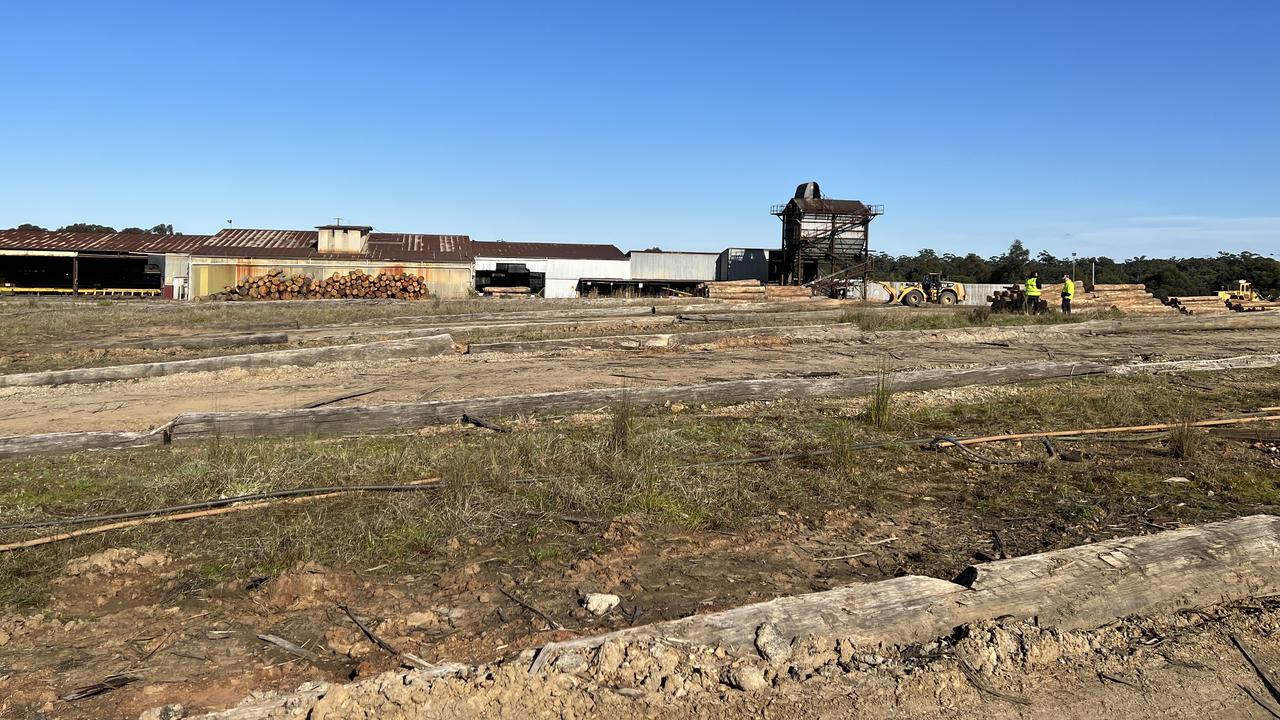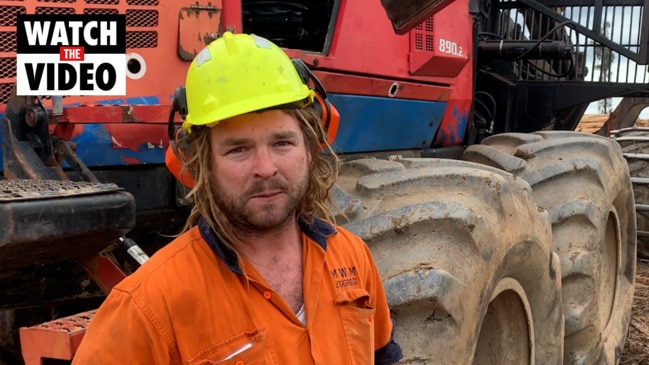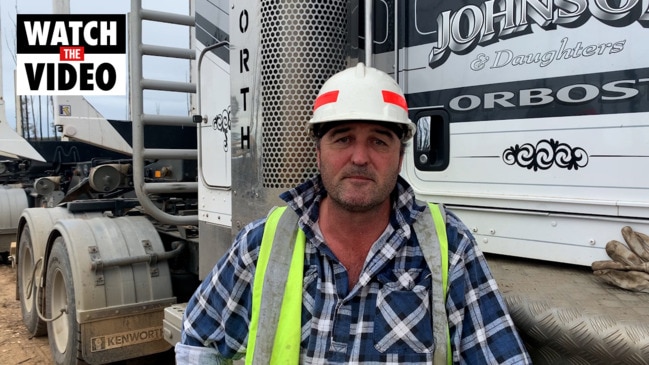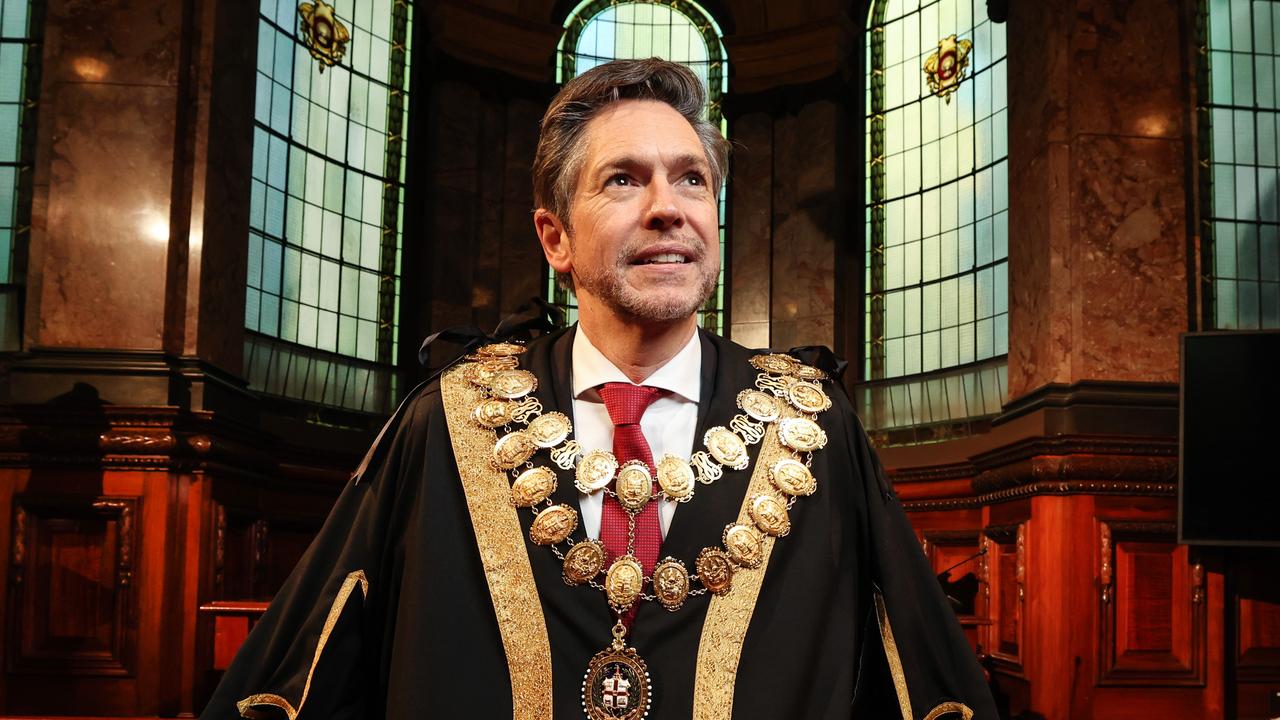Orbost to lose 115 timber jobs to become a “retirement village”
East Gippsland’s timber industry is on the brink of collapse, with 115 workers facing the axe and warnings Orbost will become a “ghost town”. This is their story.

Victoria
Don't miss out on the headlines from Victoria. Followed categories will be added to My News.
East Gippsland’s timber industry is teetering on the brink of collapse, with 115 workers facing the axe years ahead of the Andrews government’s 2030 phase-out of native forest logging.
Sawlog supplies have dwindled to subsistence levels in the wake of anti-logging activists’ legal action, which last December led the Victorian Supreme Court to slap injunctions on harvesting coupes within 240m of greater glider possum sightings.
But pre-harvest ecological surveys and environment groups’ glider sightings are so common that VicForests told the court last month it could harvest only 13 of the 1418 coupes on its timber release plan.
In her ruling last December Justice Melinda Richards said “the risk of permanent and irreversible harm to greater gliders, a threatened species, outweighs the cost and disruption that is likely to result from the injunctions”.
That disruption, however, is crippling timber towns across Victoria, with Victorian Ash supplies dwindling to 65 per cent of contracted volumes last season and almost nothing in the pipeline for the season ahead.
The industry is nervously awaiting Justice Richards’ final decision on the drawn-out case, with one of Orbost’s last two mills forced to halt work last month.
Mectek’s Newmerella mill has stood down its nine workers, mothballing operations in the hope sawlog supplies will flow once again, receiving just half a load of timber last week.
“I need 10-15 loads to warrant firing up again,” Mectek manager Clinton Mekken said.
The timber yard at Parkside’s Brodribb River mill, east of Orbost, is almost empty, leaving its 37 workers facing a bleak future.
Parkside managing director Peter Tapiolas said that while green group injunctions were locking up coupes “we still believe there is a healthy future in sustainable harvesting of Victorian forests”.
“Log deliveries have been slow. But we’re confident VicForests will provide deliveries and we won’t have to close.”
Local harvest and haulage contractors are not so confident, with both Andy Westaway and Rob Brunt struggling to deal with ongoing shortfalls that have forced them to lay of crews for months at a time.
Between them, the contractors employ 38 workers across five harvest crews, truck drivers, administrative staff and mechanics.
“Some of the younger guys are saying ‘there’s nothing in it for me, so I’m out now’,” Mr Brunt said.
“I can’t even invest in any equipment, while what I’ve got is past its productive life.”
One of those younger workers is Mick Morrison, who says Orbost is being crippled by the loss of access to forests.
“I was a farmer, fisherman and now I work in forestry, (but) it seems all hands-on jobs aren’t going to exist anymore,” Mr Morrison said.
“As for Orbost, there’s 114 jobs that are going to be impacted, which is 25 per cent of our community. So, if you have 25 per cent of blokes looking for jobs, what am I going to do?
“We don’t have that sort of industry anymore.”

Premier Daniel Andrews and his past three Agriculture Ministers have repeatedly promised to “transition” timber workers to plantation forestry, since announcing in 2019 that native forest logging would be phased out by 2030.
But the area under plantation in Victoria has shrunk from 430,500ha in 2009-10 to 386,600ha in 2019-20.
The Andrews government has also failed to roll out a 2017 budget commitment of $110m to establish 50,000ha of plantations – 10,000ha of hardwood and 40,000ha of pine.
Meanwhile the 2019-20 Black Summer fires wiped out vast areas of pine plantations across Victoria and NSW, exacerbating shortages.
“They keep talking about transition, but there’s nothing to transition to,” Mr Westaway said.
“We’ve had four months with no work for one crew and no help. (But) we paid them all wages over that time.”
The uncertainty of not knowing if and when they can harvest timber is eating away at the forest crews.
“They give you a coupe and then all of a sudden you’ve lost it,” Mr Westaway said.
“They don’t really know what they’re doing to this town. There are so many people reliant on the timber industry.
“There are going to be families that will move away, because there’s no employment here.”
Haulage contractor Damien Johnson said Orbost would become a “retirement village” once Daniel Andrews and the Greens shut down the timber industry.
“He’s going to shut down the industry, which is a renewable industry, with no science whatever over it,” Mr Johnson said.

Timber harvest worker Geoff Caldwell said the loss of the timber industry would turn Orbost into a ghost town.

Timber harvest worker Brett Edlington said he would have to chase work elsewhere, as he couldn’t see a future in the industry due to lockups and legislative restrictions.

Originally published as Orbost to lose 115 timber jobs to become a “retirement village”








